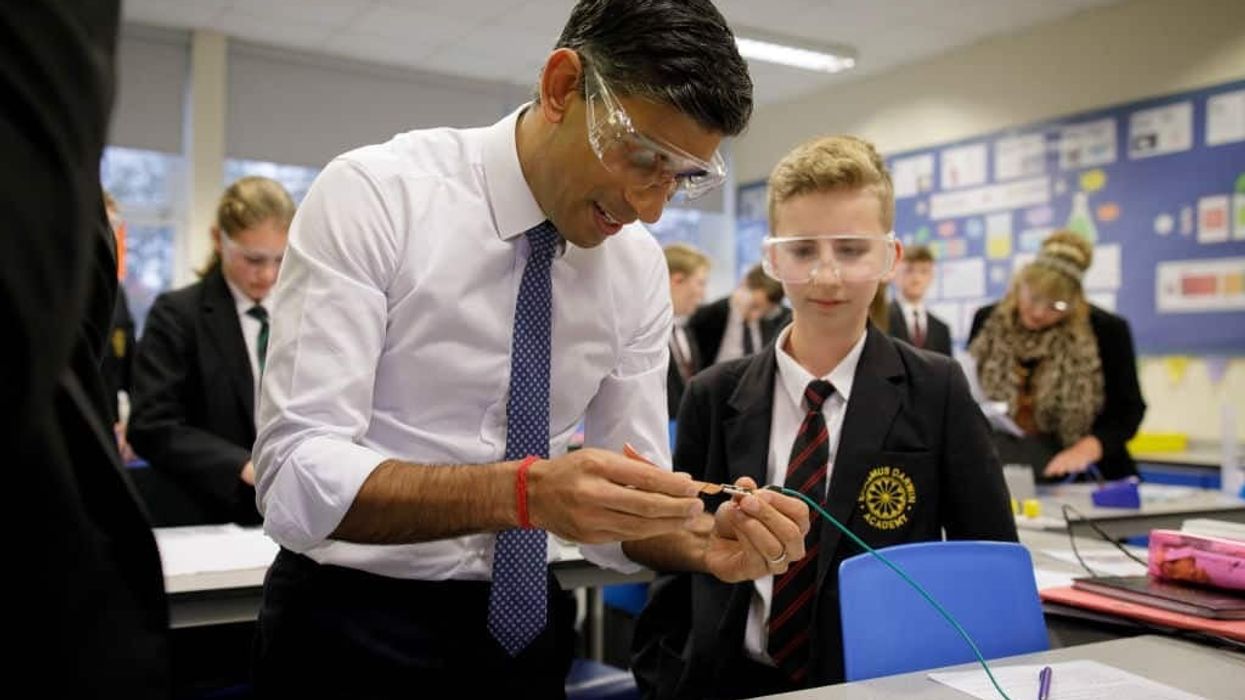One month on since Rishi Sunak took charge as Britain’s first Indian-origin Prime Minister, indications on Friday are that his popularity with the UK electorate remains on stronger ground than that of the governing Conservative Party.
The 42-year-old former chancellor had pitched himself as a steady hand to steer the country’s economy through a tumultuous cost-of-living crisis in the wake of the COVID pandemic and the Russia-Ukraine conflict.
With predecessor Liz Truss making the dubious history of being Britain’s shortest incumbent at 10 Downing Street after a disastrous unfunded mini-budget, his message of clamping down on inflation on a war footing seems to have inspired faith in his leadership.
According to the "November Ipsos Political Monitor", a survey conducted earlier this month, Sunak started his premiership relatively liked and even overtook Opposition Labour Party Leader Keir Starmer for having what it takes to be a good Prime Minister.
However, the opinion poll also found that the proportion saying they like the Conservative Party has fallen further since June to its lowest level since Ipsos started asking the question in 2007, while the proportion who like the Labour Party slightly rises.
“Nearly half (47 per cent) say they like Rishi Sunak, against two in five (41 per cent) who dislike him. This makes Sunak more liked than Boris Johnson earlier this year,” Ipsos said.
“However, just one in four (26 per cent) say they like the Conservative Party, which is their worst rating since June 2007 when they scored 29 per cent under [then Prime Minister] David Cameron. With 62 per cent saying they dislike them, the party’s current net likeability rating of -36 also beats their previous low of -30 under Boris Jonson this June,” it notes.
Perceptions of Sunak have received a small boost since he took charge on October 25 following the shocking resignation of Liz Truss after she lost the backing of her own party members.
Two in five or 42 per cent agree Sunak has what it takes to be a good prime minister, which is up seven points since the Conservative leadership race in July, against a third or 34 per cent who disagree, which is down 9 points.
This puts the British Indian leader slightly ahead of Starmer, where opinion is more divided as 35 per cent agree he has what it takes, and 37 per cent disagree, although he performs better among his own party supporters.
The personal endorsement will come as a welcome outcome for Sunak but the declining popularity of the Tories -- also in line with an anti-incumbency factor after 12 years of a Conservative-led government -- will be a worry for someone who will be looking ahead to leading the party into a general election by 2024.
The challenges facing him are immense, including getting a grip on the country’s economic crisis amid the global headwinds of an energy crisis caused by the ongoing conflict in Europe.
On the domestic front, Sunak appointed a senior lawyer this week to investigate allegations of bullying against his close ally and Deputy Prime Minister Dominic Raab.
The issue of illegal migration through small boats crossing the English Channel is another crisis that has spiralled out of control even as the UK tries to find a clear path forward since leaving the European Union (EU).
As a staunch Brexiteer himself, Sunak has ruled out any alignment with EU laws but has also shown greater flexibility than his predecessors in dealing with close neighbours such as France.
All this comes as former prime ministers Boris Johnson and Liz Truss join forces to back a Tory backbench rebellion.
The rebels are using a government bill to demand an end to the ban on new onshore wind farms, an indication of how the different factions of the governing party are determined not to let the new leader have an easy ride in the Parliament.
(PTI)




